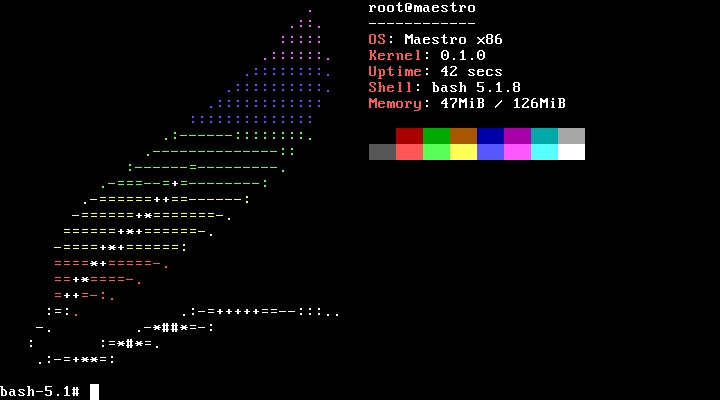- cross-posted to:
- hackernews@lemmy.smeargle.fans
- cross-posted to:
- hackernews@lemmy.smeargle.fans
Enter Maestro, a unix-like monolithic kernel that aims to be compatible with Linux in order to ensure wide compatibility. Interestingly, it is written in Rust. It includes Solfége, a boot system and daemon manager, maestro-utils, which is a collection of system utility commands, and blimp, a package manager. According to Luc, it’s creator, the following third-party software has been tested and is working on the OS: musl (C standard library), bash, Some GNU coreutils commands such as ls, cat, mkdir, rm, rmdir, uname, whoami, etc… neofetch (a patched version, since the original neofetch does not know about the OS). If you want to test it out, fire up a VM with at least 1 GB of ram.



I’ve had the privilege of switching from C++ to Rust almost completely in my professional work. I can tell you in no uncertain terms, the language itself makes an enormous difference.
When I was doing highly concurrent multi-threaded programming in C++, I would sometimes have to waste entire weeks hunting down subtle data race bugs, despite the fact that I have a solid understanding of concurrency and multithreading. In some cases the bugs would originate in third party libraries that I was using, even though those libraries came from credible sources like Microsoft, Google, and GNU.
Switching to Rust, those bugs are gone. By the time my code compiles there’s at 95% chance that it will work exactly the way it’s intended to without any debugging. The remaining 5% is silly little logic accidents like saying
if condition { ... }when I meant to sayif !condition { ... }and those bugs are trivially caught by writing a few simple unit tests (and Rust also makes it easier to write unit tests than any other language I know of).When I see my colleagues struggle with debugging problems in their JavaScript, Python, or C++ code, almost every time it turns out to be something that would’ve been trivially caught by the Rust compiler.
By no means does using Rust guarantee that your code will be completely bug free. But the language alone gets you so close to that goal that it hardly takes any special effort beyond compiling to get all the way there.
I think this is a huge reason that the ecosystem grows as quickly as it does: it’s so easy to write code that you can feel confident enough about to publish for anyone to use that many people go ahead and do that, and others feel confident using the work of others because the compiler does so much to ensure quality. It creates a virtuous cycle where people can develop faster by taking advantage of other people’s efforts and then release their own effort back into the community.